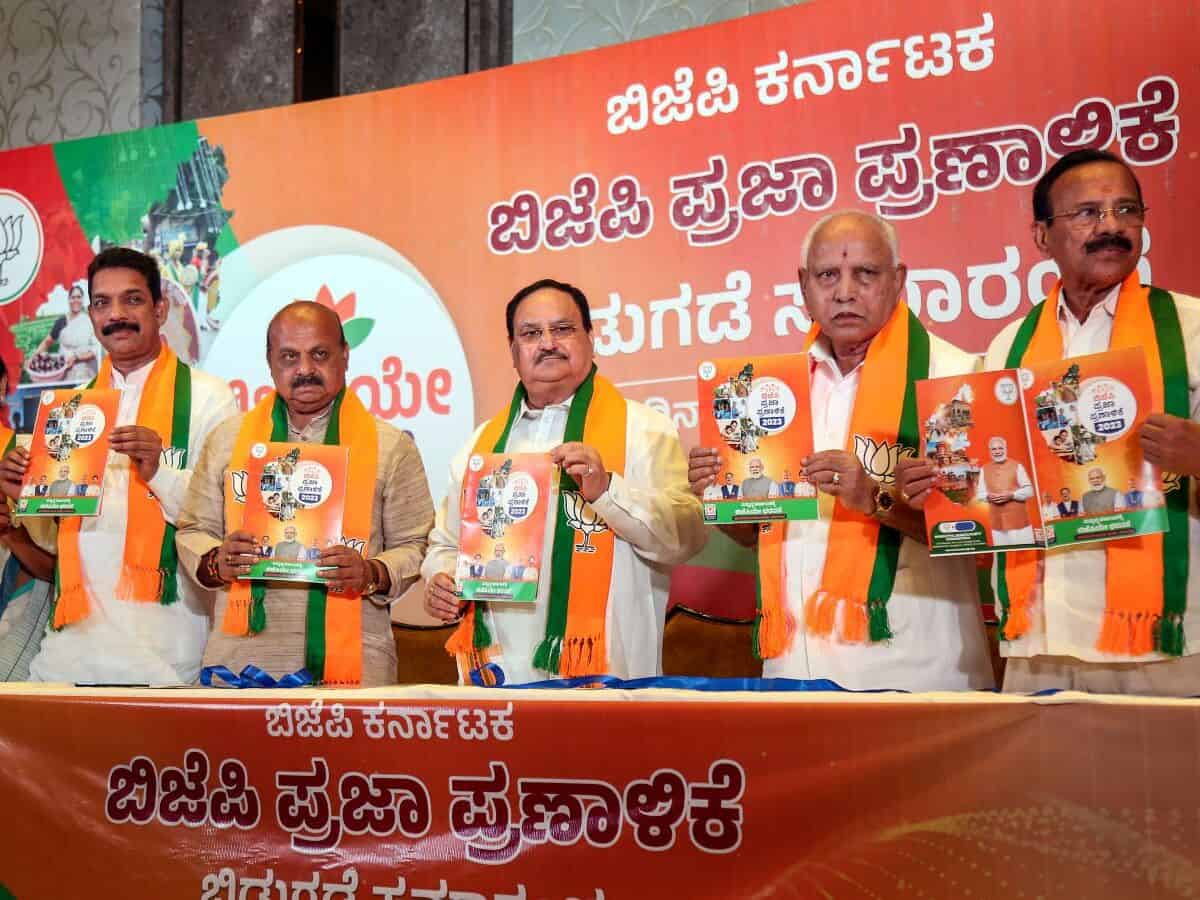
The Bharatiya Janata Party (BJP) has released its manifesto for the upcoming Karnataka assembly elections on Monday. The document, titled “Praja Pranalike’ 2023”, includes 16 top promises, and among them, the implementation of the National Register of Citizens (NRC) and Uniform Civil Code (UCC) in Karnataka are controversial.
The manifesto was released by BJP President JP Nadda in the presence of Chief Minister Basavaraj Bommai and his predecessor BS Yediyurappa. The party has also announced that it will ensure the speedy deportation of all illegal immigrants in the state.
Union Home Minister Amit Shah and Nadda have held roadshows in the state as part of the party’s campaign.
Karnataka is scheduled to go to the polls on May 10, with the counting of votes set to take place on May 13. As the elections draw near, the BJP is expected to push for its promises, including the implementation of the NRC.
What is NRC?
The NRC is a register of all Indian citizens, whose creation was mandated by the 2003 amendment of the Citizenship Act, 1955. It was first implemented in Assam in 2013-14.
The NRC includes persons who satisfy at least one of the listed conditions, such as
- Those whose name appeared in the NRC of 1951 or Electoral Rolls up to March 24, 1971,
- Those who can provide any one of the admissible documents issued up to March 24, 1971,
- Descendants of the above persons.
- All members of the Tea Tribes are also included.
While updating the NRC in Assam, the cut-off date was March 24, 1971, whereas, in the case of other parts of India, there is no such date.
Citizenship by Birth in India
As per the Indian constitution, all persons born in India between January 26, 1950, and July 1, 1987, automatically received citizenship by birth, regardless of the nationalities of their parents.
From July 1, 1987, until December 3, 2004, children born in the country received Indian citizenship by birth if at least one parent was a citizen.
After December 3, 2004, citizenship by birth is granted only if both parents are Indian citizens or if one parent is a citizen and the other is not considered an illegal migrant.
The inclusion of the NRC in the BJP’s Karnataka manifesto has raised concerns among some citizens, as the implementation of the NRC has been a contentious issue in the country.



